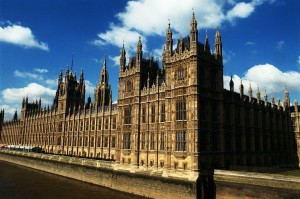I have been following the horse meat burger issue very closely, below are the questions I have put to the Government about this matter in the last month. Source: Hansard http://www.parliament.uk/business/publications/hansard/

Written Questions
Mr Bradshaw: To ask the Secretary of State for Health whether inspections by the UK Food Safety and Food Standards Authorities routinely involve DNA testing to identify the contamination of foodstuffs.
Anna Soubry: The analysis of food products using DNA-based methodology is an established technique and used routinely by United Kingdom official control laboratories and commercial laboratories. These tests are used most often to determine fish species in food products, and presence of genetically modified organisms. Six UK official control laboratories are able to analyse meat to determine whether it contains horse DNA using DNA-based methodology.
The DNA analysis method is only one of the analytical methods available to determine whether substitution of meat has taken place. Other analytical methods include ELISA (Enzyme Linked Immuno-absorbent Assays) testing kits that match proteins present in a food product with proteins present in known meat species.
Each year, local authorities carry out a substantial amount of sampling of meat identification to ensure that the meat species in meat products match the expectations of the label description. In 2012, at least 796 samples were tested for meat identification (testing for other meat species in meat products) as part of local authority risk-based sampling programmes. While some of the samples were found unsatisfactory, none had been tested for presence of horse meat.
Mr Bradshaw: To ask the Secretary of State for Health when he was informed about the sale of beef burgers on sale in Britain which were possibly contaminated with horse and pork meat; and what steps he has taken in response to this information.
Anna Soubry: The Food Standards Agency (FSA) was notified by Food Safety Authority Ireland on 14 January that they were proposing to report on the analysis carried out into a number of meat products; including beef burgers, which revealed that some contained horse and pig DNA.
The FSA has launched an urgent investigation into this issue and are working closely with the Department for Environment; Food and Rural Affairs on this. A four-point plan has been published on the FSA website at:
www.food.gov.uk/news-updates/news/2013/jan/horse-update
Mr Bradshaw: To ask the Secretary of State for Health what steps he plans to take against those retailers who have sold inaccurately labelled meat products.
Anna Soubry: The food businesses which the Food Safety Authority Ireland survey named as having sold inaccurately labelled products, are under investigation by local authority officers who are responsible for enforcing food composition and safety legislation. These investigations may lead to formal action.
Mr Bradshaw: To ask the Secretary of State for Environment, Food and Rural Affairs how many officials of his Department work on monitoring food composition; and how many did so in 2010.
Mr Heath: The Food Standards Agency, and not DEFRA, has responsibility within central Government for food law enforcement, which includes the routine monitoring of foodstuffs to ensure compliance with the legislation on food quality, composition and standards.
However, the administration of a food authenticity research programme that funds the development of methods to detect food mis-labelling and food fraud was an area of responsibility that transferred from the Food Standards Agency to DEFRA in July 2010 under the Machinery of Government changes. Three posts were transferred from the agency to DEFRA as a result of that change. The methods developed under the food authenticity research programme are used by trading standards officers and public analysts in official control laboratories in carrying out their enforcement duties.
Mr Bradshaw: To ask the Secretary of State for Health when the Dalepak Hambleton plant in Yorkshire was last inspected; and what the nature of that inspection was.
Anna Soubry: Food law enforcement responsibility for the Dalepak plant in Hambleton Yorkshire rests with two local authorities. Hambleton district council is responsible for enforcement of food safety legislation, and North Yorkshire district council is responsible for enforcement of food composition and labelling legislation. The two authorities work closely to share information and carry out joint inspections where appropriate.
Hambleton district council inspected these premises on 25 June 2012 to check compliance with food hygiene legislation, this comprised an inspection of the premises, documentary and traceability checks.
North Yorkshire Trading Standards Officers inspected the premises on 6 March 2012 to check compliance with meat composition and labelling requirements.
The Environment Agency last visited the site on 3 March 2012, where their audit focused on the site’s preventative maintenance regime, environmental management procedures and ensuring that the outlets for wastes generated during food production complied with the relevant waste management regulations. During their audit the Environment Agency did not identify any areas where the operator was not complying with the conditions of their environmental permit.
Spoken Question
Mr Ben Bradshaw: I have to tell the Minister that he is striking a very ill-judged tone. Where is the Secretary of State? Will these retailers be prosecuted? Was it not total folly to remove any responsibility for food safety or standards from the independent Food Standards Agency to his Department?
Mr Heath: I have already explained that we have not done that. It is the policy on food labelling, which is considered at Agriculture Council, that is within DEFRA. I do not think that the right hon. Gentleman’s other comments require a reply.
Roger Williams: At a time when commodity prices are very high, food adulteration is likely to become a bigger problem. When we have high-priced beef and—as I understand it—low-priced horsemeat, some unscrupulous food processors are likely to take advantage. Will the Minister therefore ensure that when commodity prices are high throughout the food chain, the Food Standards Agency has responsible processes in place to ensure that adulteration cannot happen in this country, and that British food maintains its high status?
Mr Heath: We certainly need to do that—that is one of the things that is in train. I have said that the FSA operates on the basis of intelligence—it will continue to do so, because it is important that we find where adulteration takes place. However, it is important to say that manufacturers and retailers have a responsibility to establish very clearly the provenance of the food they supply. Most retailers and processers in this country do an extremely good job of exactly that, but when the system falls down, we must investigate and take appropriate action.
Barry Gardiner: People trust brands such as Tesco to have precisely sourced their supply. The Minister rightly said that it is not illegal to sell horsemeat in this country, but he also rightly said that it is illegal to sell horsemeat if it is not properly labelled as such. What steps have been taken to prosecute Tesco and others for their failure to label properly the food they were supplying to their customers?
Mr Bradshaw: Answer the question this time.
Mr Heath: I am so grateful to the right hon. Member for Exeter (Mr Bradshaw) for his advice.
The investigations will precede the prosecution process. That is the way we do things in this country. We investigate first and take prosecutions to court if it is appropriate to do so. I do not think—[Interruption.]
Mr Speaker: Order. I understand the strength of feeling on the matter and the considerable expertise of the hon. Member for Brent North (Barry Gardiner), but I would look to him ordinarily to behave in a statesman-like manner, and he fell short of the standard on that occasion. He must calm himself. Let us hear the answer.
Mr Heath: As I was saying, if prosecutions are required, they will of course take place, either in this country or in the Republic of Ireland as appropriate. However, it is important to gather evidence before mounting a prosecution.


